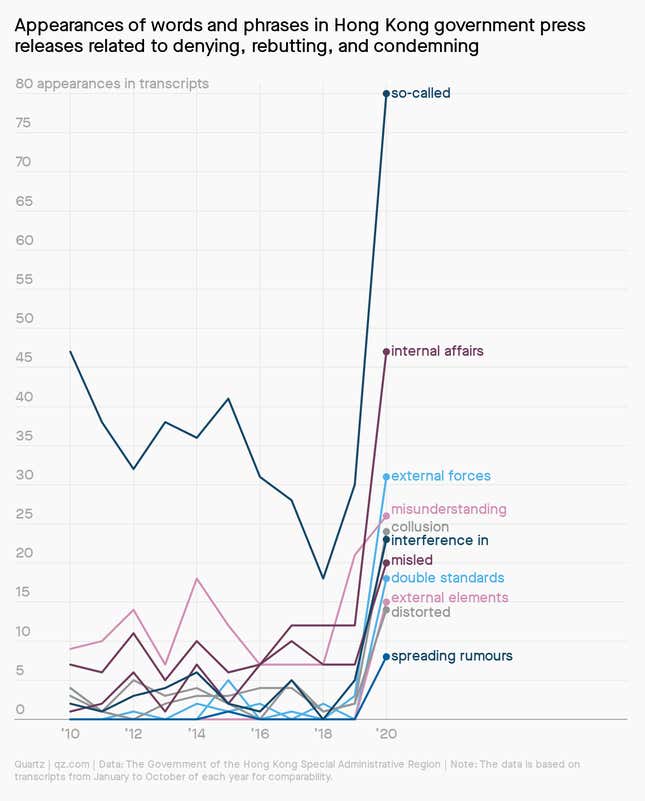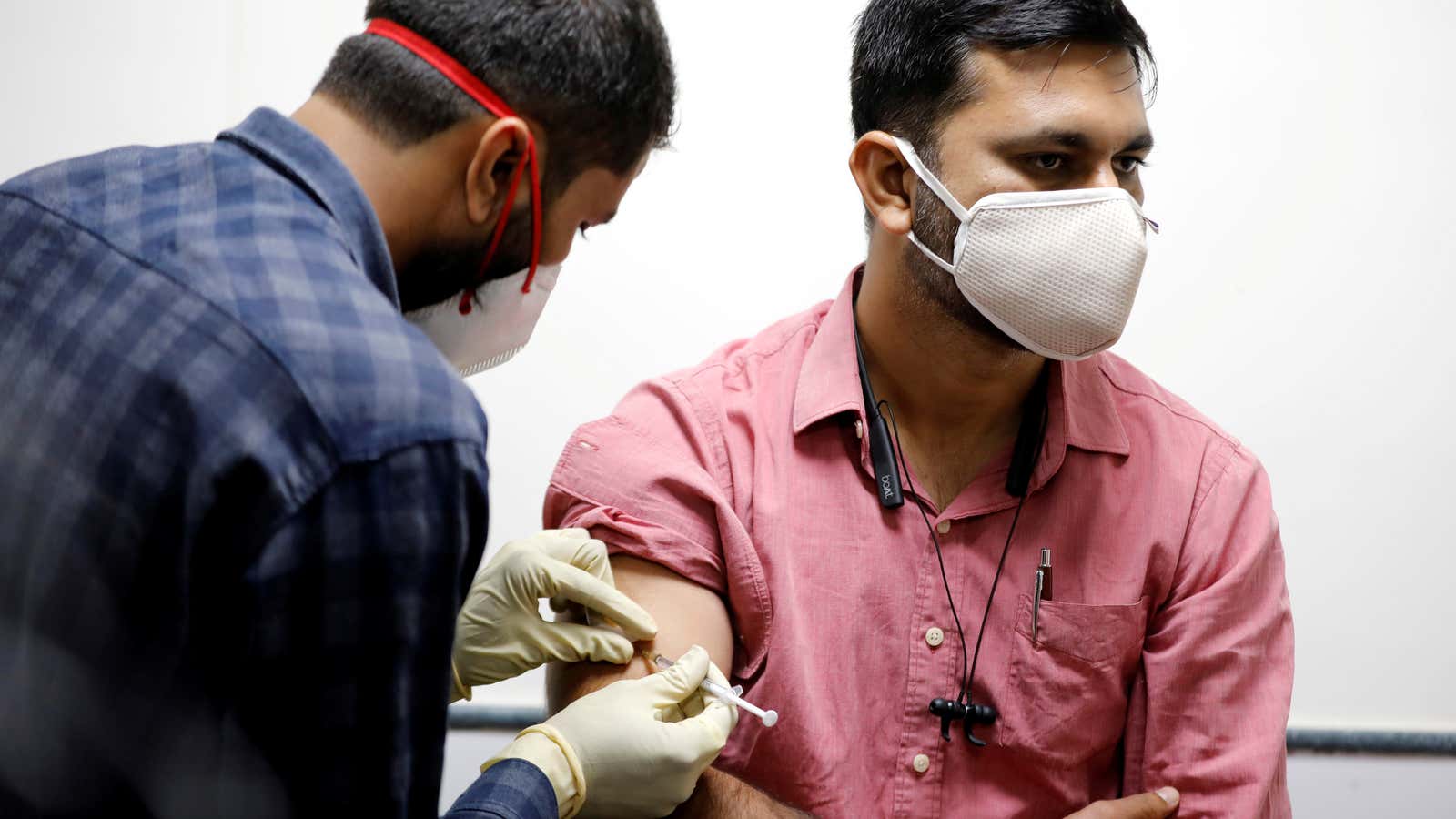Good morning, Quartz readers!
Here’s what you need to know
Bharat Biotech’s Covid-19 jab had no serious ill effects in phase 1 trials. Government regulators had asked for more safety data on Covaxin, which is currently in phase 3 tests, before giving it emergency authorization. Meanwhile, the US said Pfizer is working on production challenges for its vaccine.
Indonesia’s president will be the first in the country to get a vaccine. Jabs will be free for all, but in contrast to other nations, those aged 18-59 will be vaccinated first.
The WHO will lead an investigation into Covid-19’s origins in Wuhan. A team headed by experts from the World Health Organization will arrive in the Chinese city in January.
Massachusetts accused Robinhood of failing to protect users… Regulators in the US state filed a complaint stating the trading platform targeted inexperienced investors and exposed them to “unnecessary trading risks.”
…and 10 other US states accused Google of having a monopoly in adtech. The latest antitrust suit against the tech company focuses on its behavior since its 2008 acquisition of DoubleClick. Meanwhile, Facebook claims Apple’s new restrictions on data gathering for advertising purposes are anticompetitive.
Australia escalated its trade dispute with China. Beijing seemed unfazed by Australia’s first World Trade Organization investigation into a year-long, $20 billion barley tariff dispute that has grown to include disagreements over beef, wine, and coal.
A new label for Switzerland and Vietnam. The US Treasury announced two new currency manipulators and placed 10 other countries, including China, on a watchlist of nations accused of devaluing their currencies.
What to watch for

The US Congress grills the makers of dangerous opioids. Today, the House Committee on Oversight and Reform will interrogate David and Kathe Sackler, two members of the secretive billionaire family that owns Purdue Pharma, which recently pled guilty to fraudulently marketing opioid painkillers and bribing doctors to prescribe them to patients.
The Sacklers made their fortune—estimated at $13 billion—at the expense of OxyContin addicts, and emerged from the case with a mere $225 million fine and no criminal charges. Family members have largely managed to avoid testifying in public—until now. The hearing will stream on YouTube at 9am Eastern time.
For a deeper dive, check out our documentary 🎥 on how the US opioid epidemic is taking the Sacklers’ marketing playbook overseas.
Charting Hong Kong’s authoritarian language
Words, beyond their basic function of communication, signal intent and outline ways of thinking. But in an age of “alternative facts,” we know too well that words can obscure as much as they clarify. Words can also be weapons.
In Hong Kong, as large-scale protests erupted in 2019, followed by this year’s severe crackdown spearheaded by a national security law imposed by Beijing, the government increasingly adopted the authoritarian language of the Chinese Communist Party. Previously staid pronouncements peppered with anachronisms—products of its technocratic governance with roots in 150 years of British colonial rule—became much more brash in tone, loudly assertive in projecting power, and snide in their rebuttal of public criticism. Dan Kopf and Mary Hui explore this language shift and what it means.

To the moon and back

China successfully landed a spacecraft full of lunar surface samples in Mongolia today, completing the Chang’e 5 mission that launched in November. Assuming the samples are safe and sound, it’s the first time humans have brought back anything from the moon since 1976.
The roughly 2 kg of rocks, which come from a previously unexplored lunar region, promise to give scientists new information about the history of our solar system and how the moon formed. The mission also demonstrates the increasing sophistication of China’s space technology. As the globe gears up for a new season of moon exploration, China next plans to sample a different moon location in 2024, while the US is plotting its own fleet of private moon robots.
✦ Like moon rocks for your brain, Quartz membership promises to give you new information that puts the world in context. Try it free for seven days.
Surprising discoveries
Paris was fined for putting too many women in charge. The city violated a law mandating new senior civil servant appointments be at least 40% men and 40% women.
China’s ancient feng shui forests could be key to its zero-carbon future. The tiny fengshuilin are pollution-resistant carbon sinks full of biodiversity.
Couscous made UNESCO’s list of intangible world heritage. The body also recognized Singapore’s hawker culture and Swiss and French watchmaking.
A whole new meaning to “flashing a smile.” An Ohio zoo discovered their Tasmanian devils have biofluorescent ears, eyes, and snouts.
Want to try on someone else’s face? Get one of these hyper-realistic 3D-printed masks.
Our best wishes for a productive day. Please send any news, comments, actual face masks, and little forests in need of new homes to hi@qz.com. Get the most out of Quartz by downloading our iOS app and becoming a member. Today’s Daily Brief was brought to you by Jordan Lebeau, Liz Webber, Mary Hui, Dan Kopf, Tim Fernholz, Annabelle Timsit, Kira Bindrim, and Susan Howson.
